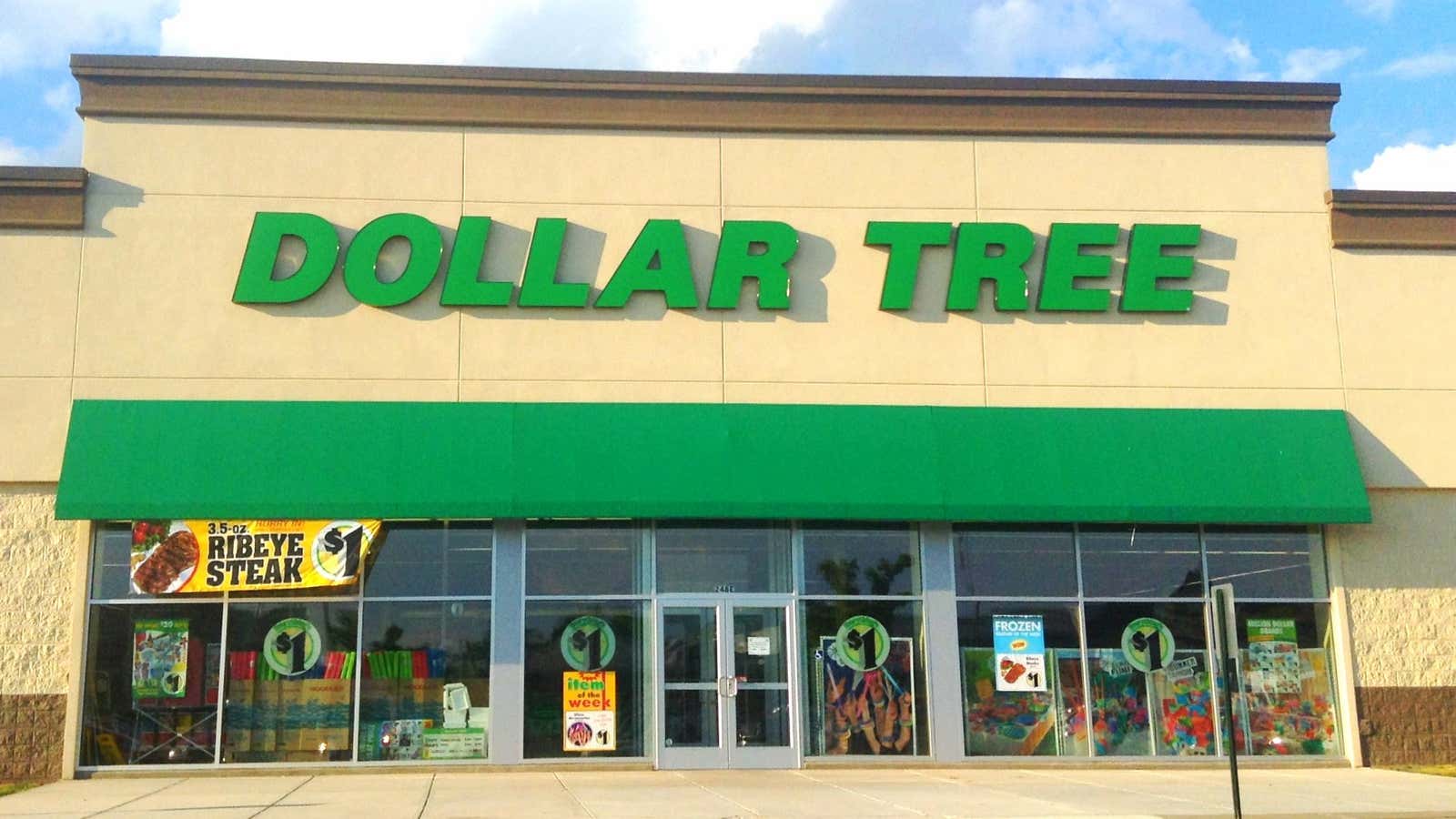It’s no secret that Silicon Valley investors back products, such as private jet shares, for the 1%. Now they’re funding companies selling to people just trying to make ends meet. That, unfortunately, is a growing market.
Americans are getting poorer, and dollar stores are thriving by underpricing other retailers who serve this demographic. Companies such as Dollar Tree, Dollar General, and FiveBelow now make up a $50 billion industry competing against retailers like Target and Walmart. This “extreme value” segment sells bargain-priced products from food to furniture at shopping centers across the country. If there’s not a store in your area yet, there probably will be soon: Dollar General is opening an average of about three stores per day and expects to have 25,000 by 2017.
Venture capitalists have woken up to the opportunity. The success of Wish, a mobile shopping app described by one investor as “Pinterest for people without a lot of money and loud taste,” revealed the demand for low cost (and in many cases, low quality) goods for pinched shoppers. Investors have poured $570.7 million into the service, and it’s now valued at $3 billion, according to CBInsights.
E-commerce has been an afterthought for most discount sellers. Traditional players lack the digital infrastructure and supply chains to launch online operations. Amazon and other retailers aren’t keen to serve a low-end segment that requires shipping many low-priced items.
Hollar, an online discount retailer based in Santa Monica, California, stepped into the void last year and raised $17.5 million from firms such as Lightspeed Ventures Partners, BAM, and Forerunner Ventures. Since launching in November 2015, the company has reported 50% increases in month-over-month sales and hit $1 million in monthly sales this April.
The recession and spread of mobile e-commerce accelerated the growth of bargain seekers behind the company’s growth, says co-founder and CEO David Yeom. The company was started by Yeom, who ran marketing and business development at The Honest Company, a high-end brand of household items, and its CEO Brian Lee. The two hatched the idea over lunch at a Carl’s Jr. in the spring of 2015.
“We couldn’t have done this business 10 years ago,” says Yeom in an interview. ”There’s been a fundamental shift. Frugality is here to stay.”
Hollar’s model works because shoppers rarely pick just one item, nor do they stick to just $1 products (many are priced up to $5). The average customer buys 10 items for $30 via their smartphone. Women in metro areas of middle America place more than 80% of orders. Hollar sells 20,000 items in stock (many of them identical to those at Walmart and other stores) from its warehouse in Los Angeles ranging from beauty products to pet items (no bulky or perishable goods). Toys are the best sellers (the $2 Light-Up Jumbo Sparkling Unicorn Glo-Pet in particular).
Hollar will have to fight off larger retailers who are ready to defend their market share from discounters, as well as other e-commerce startups waiting to enter the space. Yeom, who shopped at dollar stores growing up, says he expects to see steady growth as more people turn to dollar stores, and more sales are made via mobile. Now only 10% of sales from dollar stores are made online.
He also wants to erase the stigma attached to the experience of shopping at dollar stores. The company launched a line of private-labeled products this month to help do that. By delivering on price, quality and convenience, Yeom says he can take even more customers from big box retailers. ”People have this connotation of broke people shopping at dollar stores,” says Yeom.”It’s not true.”
The image above was taken by Mike Mozart and shared under a Creative Commons license on Flickr.
